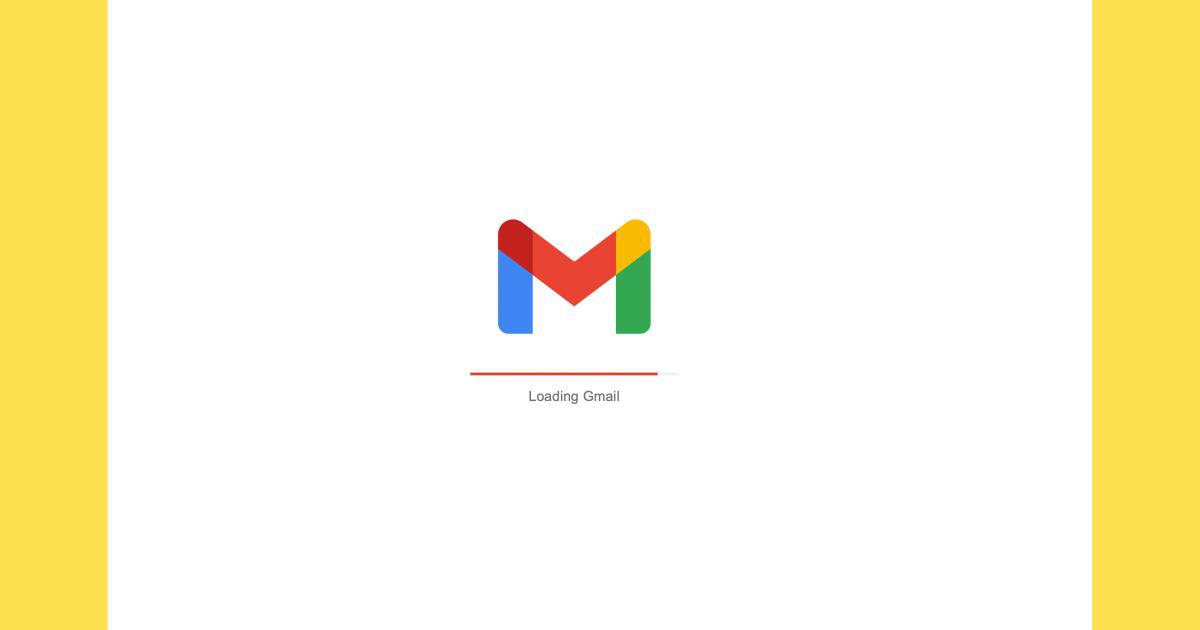Developing a Comprehensive Internet Marketing Strategy


In today's digital landscape, having a well-crafted internet marketing strategy is crucial for businesses of all sizes to reach their target audience, generate leads, and drive sales. With the ever-evolving nature of the online world, staying ahead of the curve requires a comprehensive approach that encompasses a wide range of tactics and techniques. This article will explore the key elements of a successful internet marketing strategy, providing you with the insights and actionable steps needed to develop and implement a plan that can propel your business to new heights.
Understanding the Foundations of Internet Marketing
Internet marketing, also known as digital marketing, encompasses a diverse array of strategies and tactics that leverage the power of the internet to promote products, services, and brands. At its core, effective internet marketing is about understanding your target audience, their needs, and their online behavior, and then using that knowledge to create a compelling and engaging online presence.
Defining Your Target Audience
Before you can begin crafting your internet marketing strategy, it's essential to have a clear understanding of your target audience. Who are the people you're trying to reach? What are their demographics, interests, pain points, and online habits? By developing buyer personas, you can create a detailed profile of your ideal customers, which will guide the development of your marketing initiatives.

Identifying Your Key Marketing Channels
The internet offers a wide range of marketing channels, each with its own unique strengths and best practices. Some of the most commonly used channels include:
- Search Engine Optimization (SEO): Optimizing your website and content to rank higher in search engine results and attract organic traffic.
- Pay-Per-Click (PPC) Advertising: Running targeted ads on search engines, social media platforms, and other websites to drive traffic and generate leads.
- Social Media Marketing: Leveraging platforms like Facebook, Instagram, LinkedIn, and Twitter to engage with your audience, build brand awareness, and drive conversions.
- Email Marketing: Building and nurturing an email list to deliver personalized, relevant content and offers to your subscribers.
- Content Marketing: Creating and sharing valuable, informative, and engaging content (e.g., blog posts, videos, infographics) to attract and retain your target audience.

Selecting the right mix of marketing channels will depend on your target audience, your business goals, and the resources you have available.
Establishing Your Online Presence
A strong online presence is the foundation of any successful internet marketing strategy. This includes:
- Website Development: Ensuring your website is visually appealing, user-friendly, and optimized for both search engines and mobile devices.
- Brand Identity: Developing a consistent and recognizable brand identity across all your online touchpoints, including your website, social media profiles, and marketing materials.
- Content Creation: Producing high-quality, valuable content that resonates with your target audience and supports your marketing goals.

Crafting Your Comprehensive Internet Marketing Strategy
With a solid understanding of the foundations of internet marketing, you can now begin to develop a comprehensive strategy that aligns with your business objectives. Here are the key components to consider:
Setting Measurable Goals and Objectives
The first step in creating your internet marketing strategy is to define your goals and objectives. What do you hope to achieve through your online marketing efforts? Common goals may include:
- Increasing brand awareness
- Generating more website traffic
- Growing your email subscriber list
- Driving more leads and sales
- Improving customer engagement and loyalty
By setting specific, measurable, attainable, relevant, and time-bound (SMART) goals, you can create a roadmap for your internet marketing initiatives and track your progress along the way.

Conducting Comprehensive Competitor Analysis
Understanding your competition is crucial to developing a successful internet marketing strategy. Conduct a thorough analysis of your competitors' online presence, including their websites, social media profiles, content marketing, and advertising tactics. Identify their strengths, weaknesses, and unique selling propositions, and use this information to inform your own strategy.

Developing a Robust Content Marketing Plan
Content marketing is the backbone of a comprehensive internet marketing strategy. By creating and distributing valuable, informative, and engaging content, you can attract and retain your target audience, establish your brand as an industry authority, and drive conversions.
A well-crafted content marketing plan should include:
- Content Creation: Developing a content calendar and producing a variety of content types, such as blog posts, videos, infographics, and social media updates.
- Content Optimization: Ensuring your content is optimized for search engines, with relevant keywords, meta tags, and other SEO best practices.
- Content Distribution: Promoting your content across various channels, including your website, social media platforms, email newsletters, and industry-relevant websites and forums.
- Content Repurposing: Maximizing the value of your content by repurposing it into different formats, such as podcasts, webinars, or SlideShare presentations.

Implementing an Effective Search Engine Optimization (SEO) Strategy
Search engine optimization (SEO) is a crucial component of a comprehensive internet marketing strategy. By optimizing your website and content for search engines, you can improve your visibility in search results and attract more organic traffic to your online properties.
Your SEO strategy should include:
- Keyword Research: Identifying the keywords and phrases your target audience is searching for, and incorporating them into your website and content.
- On-Page Optimization: Optimizing your website's structure, content, and metadata to improve its relevance and authority in the eyes of search engines.
- Off-Page Optimization: Building high-quality backlinks and improving your website's domain authority through tactics like guest posting, link outreach, and social media engagement.
- Technical SEO: Ensuring your website is technically sound, with fast loading speeds, mobile-friendliness, and a secure HTTPS protocol.

Leveraging Paid Advertising Strategies
While organic marketing tactics like SEO and content marketing are essential, paid advertising can also play a valuable role in your comprehensive internet marketing strategy. Platforms like Google Ads, Facebook Ads, and LinkedIn Ads allow you to reach your target audience more directly and measure the performance of your campaigns with greater precision.
When developing your paid advertising strategy, consider:
- Ad Targeting: Leveraging the advanced targeting capabilities of various platforms to reach the right people at the right time.
- Ad Creatives: Creating visually appealing and compelling ad creatives that grab the attention of your target audience.
- Campaign Optimization: Continuously testing and refining your ad campaigns to improve their performance and maximize your return on investment (ROI).

Harnessing the Power of Social Media Marketing
Social media platforms have become an integral part of the modern marketing landscape, offering businesses the opportunity to engage with their target audience, build brand awareness, and drive conversions.
Your social media marketing strategy should include:
- Platform Selection: Identifying the social media platforms where your target audience is most active and focusing your efforts on those channels.
- Content Creation: Developing a content calendar and creating a variety of engaging, shareable social media posts that align with your brand's messaging and your audience's interests.
- Audience Engagement: Actively interacting with your followers, responding to comments and messages, and fostering a sense of community around your brand.
- Influencer Collaboration: Partnering with relevant industry influencers to amplify your brand's reach and credibility.

Implementing Email Marketing Campaigns
Email marketing remains a powerful tool in the digital marketer's arsenal, allowing you to build and nurture relationships with your audience, share valuable content, and drive conversions.
Your email marketing strategy should include:
- List Building: Implementing effective lead capture tactics to grow your email subscriber list, such as gated content, email opt-in forms, and lead magnets.
- Segmentation: Dividing your email list into targeted segments based on factors like demographics, interests, and purchase history, enabling you to deliver more personalized and relevant content.
- Automation: Leveraging email automation tools to send triggered messages, such as welcome sequences, abandoned cart reminders, and post-purchase follow-ups.
- Measurement and Optimization: Continuously analyzing your email marketing performance, testing different subject lines, copy, and offers, and making data-driven improvements to your campaigns.

Integrating Offline and Online Marketing Efforts
While the focus of this article is on internet marketing, it's important to recognize the value of integrating your online and offline marketing efforts for a more comprehensive approach. By aligning your digital and traditional marketing strategies, you can create a cohesive brand experience and maximize your overall marketing impact.
Some ways to integrate offline and online marketing include:
- Promoting online content and offers in offline materials: Incorporate QR codes, URLs, and social media handles on your business cards, flyers, and other offline collateral to drive traffic to your digital properties.
- Leveraging offline events and experiences: Promote your online presence and engage with your audience at in-person events, conferences, and trade shows.
- Incorporating offline data into your digital marketing: Use information gathered from offline interactions, such as customer surveys or sales conversations, to inform your online targeting, messaging, and content creation.

Measuring and Optimizing Your Internet Marketing Strategy
Effective internet marketing is an ongoing process of testing, measuring, and optimization. By regularly analyzing the performance of your various marketing initiatives, you can identify what's working, what's not, and make data-driven decisions to improve your overall strategy.
Defining Key Performance Indicators (KPIs)
To measure the success of your internet marketing strategy, you'll need to establish key performance indicators (KPIs) that align with your business goals. Some common KPIs to consider include:
- Website Traffic: Metrics like total visitors, unique visitors, and bounce rate
- Lead Generation: Number of new leads, lead-to-customer conversion rate
- Sales and Revenue: Total revenue, return on investment (ROI)
- Engagement: Social media followers, likes, shares, and comments
- Email Marketing: Open rates, click-through rates, and unsubscribe rates

Leveraging Analytics and Reporting Tools
To track and analyze your KPIs, you'll need to utilize a range of analytics and reporting tools, such as:
- Google Analytics: Provides in-depth data on your website traffic, user behavior, and conversion rates.
- Social Media Analytics: Built-in tools on platforms like Facebook, Instagram, and LinkedIn that offer insights into your social media performance.
- Email Marketing Analytics: Tracking metrics like open rates, click-through rates, and unsubscribe rates for your email campaigns.
- Paid Advertising Analytics: Platforms like Google Ads and Facebook Ads provide detailed performance data for your paid campaigns.

Continuously Optimizing Your Strategies
Armed with the data from your analytics and reporting tools, you can continuously optimize your internet marketing strategies to improve their effectiveness. This may involve:
- A/B Testing: Experimenting with different variations of your website, content, and advertising to determine which approaches perform better.
- Adjusting Targeting and Messaging: Refining your targeting criteria and crafting more compelling, relevant messaging based on audience insights.
- Reallocating Resources: Shifting your budget and focus to the marketing channels and tactics that are delivering the best results.
- Embracing Agility: Staying flexible and adaptable to the ever-changing digital landscape, and being willing to pivot your strategies as needed.

Conclusion
Developing a comprehensive internet marketing strategy is a crucial step for businesses of all sizes to thrive in the digital age. By understanding the foundations of internet marketing, crafting a strategic plan that aligns with your business goals, and continuously measuring and optimizing your efforts, you can create a powerful online presence, engage your target audience, and drive measurable results.
Remember, the world of internet marketing is constantly evolving, so it's essential to stay agile, adaptable, and always be learning. By embracing this mindset and following the guidance outlined in this article, you'll be well on your way to building a successful and sustainable internet marketing strategy that propels your business forward.